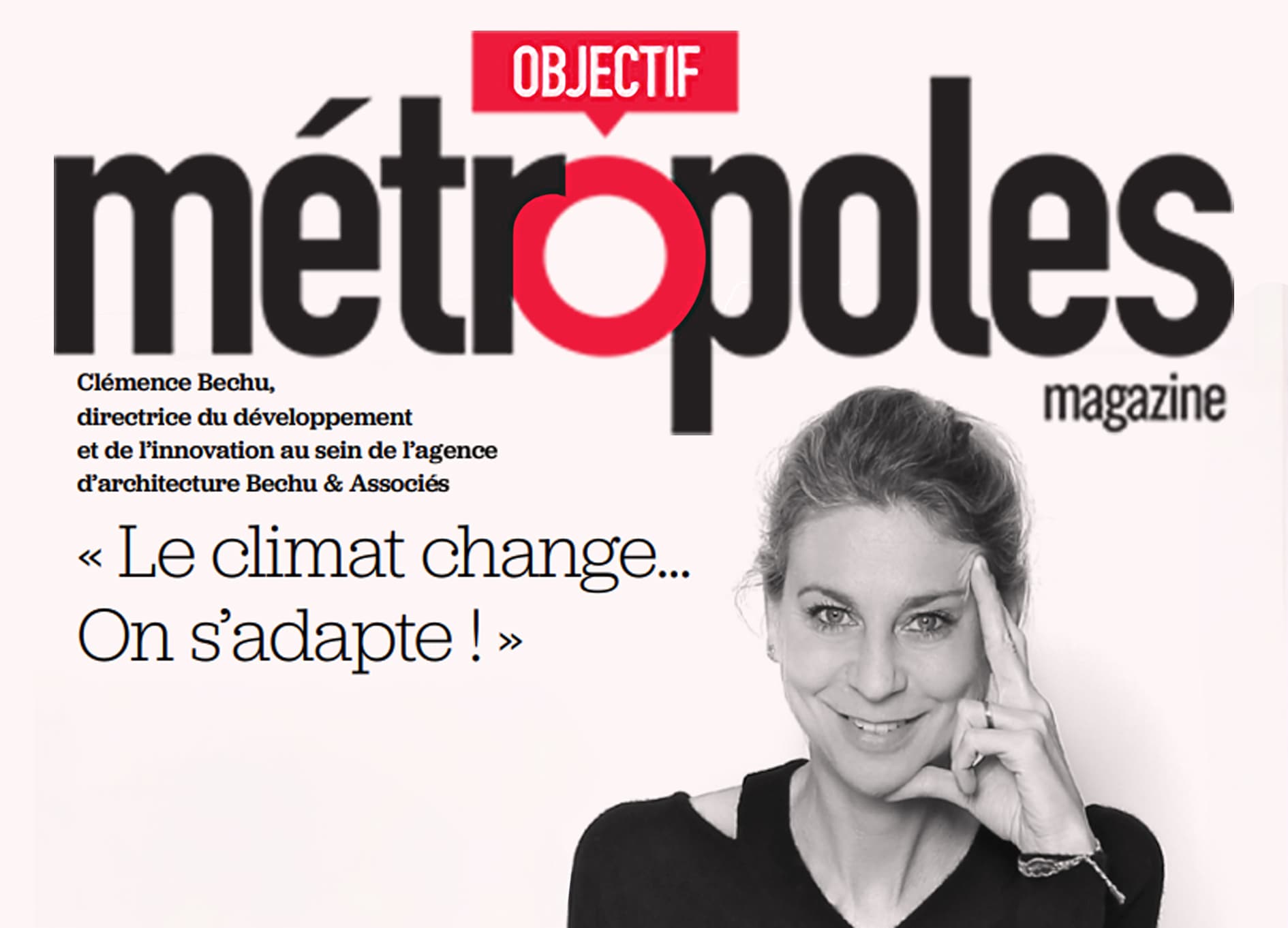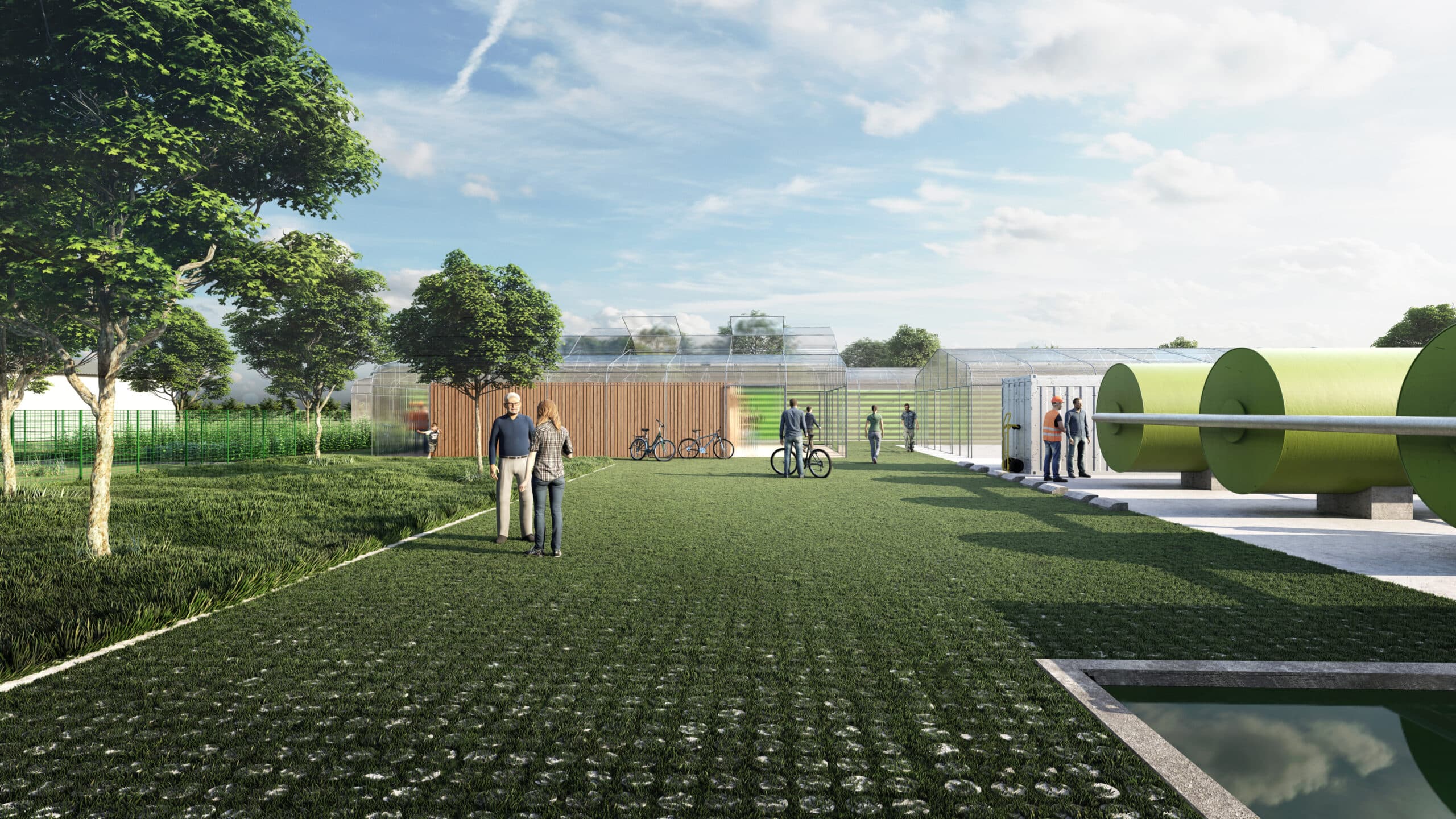New section Objectif Métropoles "And what do I do with my organic waste?"
"Managing organic waste is a major challenge that must be reintegrated into everyone's daily life. They should not be seen as a constraint because they constitute a formidable resource for our territories, allowing us to return to the earth what it has given us to nourish us."

"Nothing is lost, nothing is created, everything is transformed."

"Nothing is lost, nothing is created, everything is transformed." This famous quote, attributed to the revolutionary chemist Antoine Lavoisier, simply summarizes the Law of Conservation, noting the circular principles inherent in living things and their permanent phenomena of decomposition and recomposition of matter. Applicable to all sciences, it is undoubtedly a key to implementing our next industrial revolution, driven by our ability to ensure our transition to a circular economy. This essential path to recreating a more sustainable world also responds to the question posed by journalist Guillaume Pitron, a specialist in rare metals: is a low-carbon world necessarily a world with high material usage? In one of his latest investigations, the expert demonstrates that each industrial leap in our society has increased our need for ores and metals. The spectacular increase in the use of complex metal assemblies in generic products—along which the growing need for elements from the periodic table accumulates—demonstrates that our green technologies, very "hungry" for materials, further multiply the needs.

In light of demographic growth and our production methods—contrary to any principle of sobriety—this curve follows the same slope in terms of water consumption, energy consumption, and other waste production induced by these activities. Fortunately, the collective awareness of the effects of climate change, coupled with stringent regulations, now encourages us to change our ways. This is the case for our organic waste. As of January 1, 2024, that is, immediately, local authorities, large and medium-sized retailers, the agri-food industry, and all organic waste producers will be required to organize themselves to valorize their organic waste by proposing a virtuous circuit that holds individuals accountable. Individuals in France produce an average of 80 kilograms of organic waste per person per year. This is indeed a measure stemming from the AGEC law, which has been part of a schedule that has already engaged professionals since 2016. Ultimately, the goal is to stop the incineration and landfilling of organic waste, practices that are still too common and highly detrimental to the environment. Therefore, 2023 (with not much time left...) is a strategic year to implement source sorting and biological valorization solutions in order to comply with regulations.
Good news: solutions are not lacking!
Local or industrial composting, anaerobic digestion, or even collaboration with microalgae—startups are responding to the call and redoubling their ingenuity to enable each community to identify the solution that best adapts to its challenges and constraints.
Two of these solutions, stemming from the social and solidarity economy (SSE) and being complementary, have particularly caught my attention. The first one perfectly suits urban environments, while the second can only exist in rural settings, as it involves an anaerobic digestion process that prohibits any installation within 200 meters of any form of habitation. Here's an explanation: the creators of the #TousAlchimistes movement in 2016, Les Alchimistes, offer their sorting and composting solution to businesses and communities with a territorial network established from major urban hubs (Lille, Marseille, Nantes, Greater Paris...). Beyond their offer, which also caters to individuals—facilitating recovery with designated collection points—their methodology for transforming waste into "ready-to-compost" material through shredding proves particularly effective. Indeed, it saves nine months on the natural decomposition cycle and yields, in just three months, new soil to resell and enrich our lands.
Meanwhile, Easy, a green economy company, has developed an innovative process for valorizing organic waste through micro-anaerobic digestion and cultivation of chlorella, a microalga that enables natural purification of turbid environments. The technology goes beyond simple anaerobic digestion of organic waste. It allows for transforming solid digestate into repotting soil and liquid digestate into a culture medium for microalgae. In summary, this process has the ability to valorize all the residues from anaerobic digestion! Once harvested, the biomass constitutes an excellent biostimulant, which increases crop yield and quality by about 30%, enhances their resistance to water stress while contributing to soil regeneration. The first valorization unit developed by Easy—called a "biovalerie"—will be delivered to Brezolles this autumn, making the Centre-Val de Loire region a pioneer territory for this future-oriented technology. In light of these two examples, managing organic waste remains a major challenge that must be reintegrated into everyone's daily life. They should not be seen as a constraint because they constitute a formidable resource for our territories, allowing us to return to the earth what it has given us to nourish us. Thus, the "urban" Homo Sapiens will be able to harmonize his environment with nature and evolve without threatening his survival, towards a species that I have named "Homo Circularius." An improved version that will have known how to adopt the circular economies of living things.



